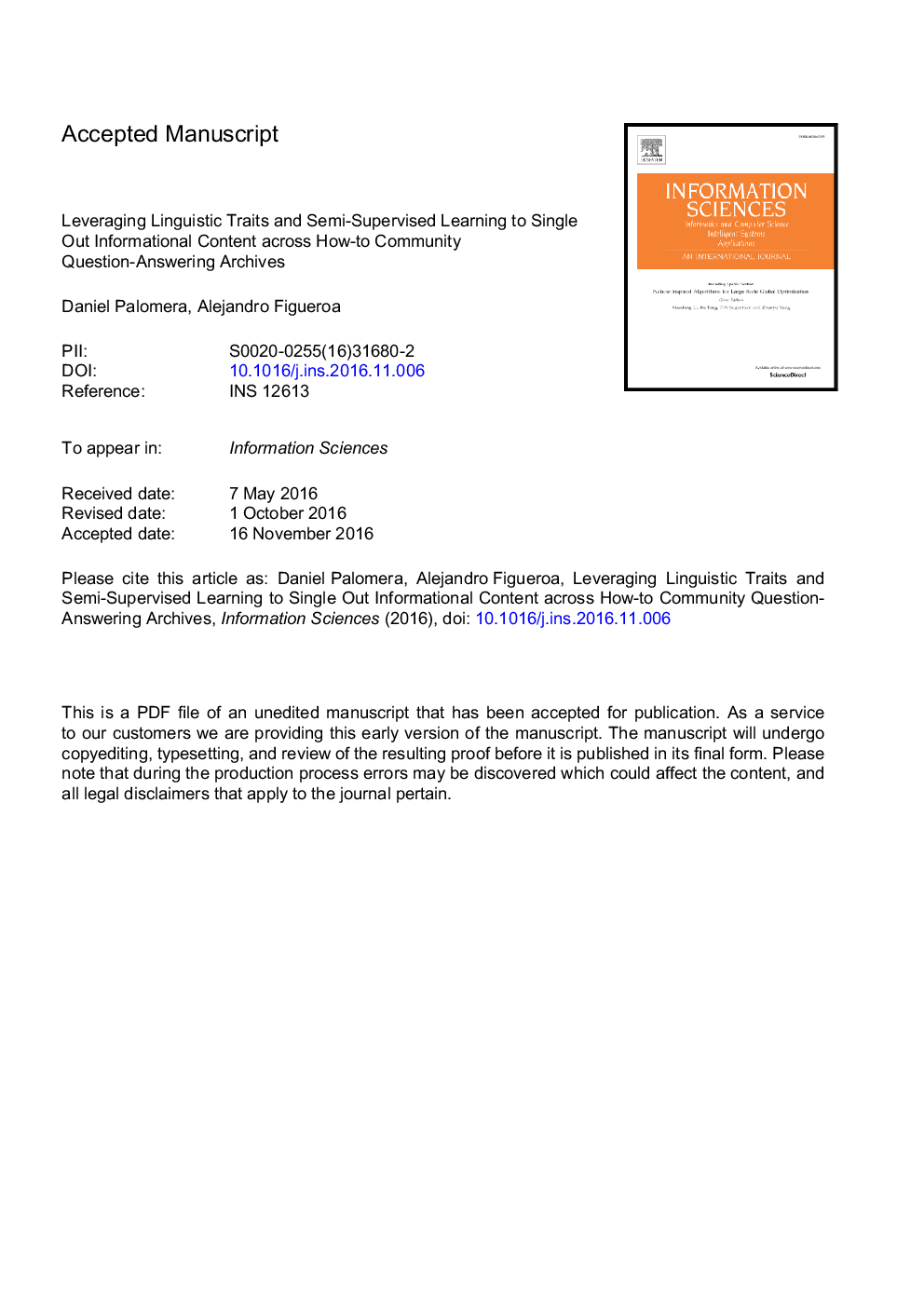| Article ID | Journal | Published Year | Pages | File Type |
|---|---|---|---|---|
| 4944644 | Information Sciences | 2017 | 16 Pages |
Abstract
Moreover, our proposed models leverage assorted linguistically-motivated features, such as sentiment analysis and dependency parsing as well as named entity recognition. Our outcomes show that attributes, harvested from morphological and sentiment analysis, proven to be effective under a semi-supervised framework. At the expenses of low annotation costs, these linguistically-motivated semi-supervised models reached an accuracy of 84.25% and 74.41% for classifying questions and answers, respectively. In addition, we quantify the impact of automatically detecting informational/non-informational intents on the retrieval of best answers, i.e., an improvement of 4.12% in terms of precision at one.
Keywords
Related Topics
Physical Sciences and Engineering
Computer Science
Artificial Intelligence
Authors
Daniel Palomera, Alejandro Figueroa,
